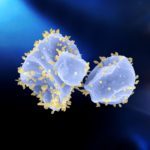Lien vers Pubmed [PMID] – 25129822
Trends Microbiol. 2014 Oct;22(10):554-8
It has been claimed that giant DNA viruses represent a separate, fourth domain of life in addition to the domains of Bacteria, Archaea, and Eukarya. Such classification disregards fundamental differences between the two types of living entities – viruses and cells – and results in confusion and controversies in evolutionary scenarios. We highlight these problems and emphasize the importance of restricting the term ‘domain’ to the descendants of the last universal cellular ancestor (LUCA), based on the shared ribosome structure. We suggest tracing phylogeny of viruses along evolutionary lineages primarily defined by virion architectures and the structures of the major capsid proteins.



